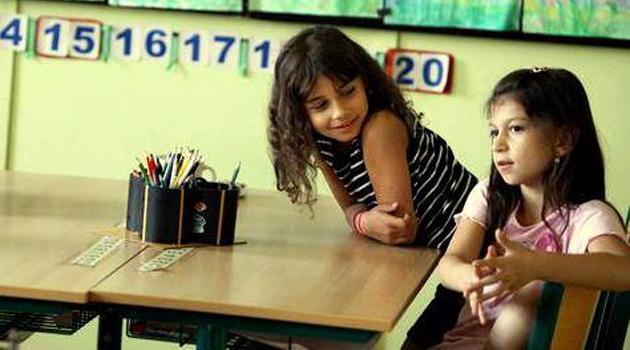Almost 60 % of Czechs believe Romani children should be educated in mainstream classes

More than half of all Czechs consider educating all children together to be the right way forward, according to a survey performed last year by the IPSOS agency for the Czech Professional Society for Inclusive Education (ČOSIV). A total of 57 % of respondents supported that opinion.
In the age group between 36 and 53, who are usually the parents of school-aged children, 62 % of respondents supported that opinion. The integration of children living with disabilities or social disadvantage into mainstream schools can be beneficial for their non-disabled fellow pupils as well, according to more than 60 % of the public.
Romani children should be educated in mainstream classes according to 59 % of Czechs; respondents with a high school or college education held that opinion more frequently (64 %). In the case of children who are foreign nationals, 78 % of respondents believe they should be educated in mainstream classes, with as many as 85 % of respondents with high school or college educations holding that view.
Children living with physical disabilities should be educated in mainstream classes together with other children according to 73 % of respondents. Children with hearing or visual impairment should be educated in mainstream classes according to less than 40 % of respondents.
Conditions for the provision of common education will change in September, when the so-called inclusion amendment to the Schools Act will begin implementation in practice. The Czech Education Ministry sees the main contribution of the new legislation as being that any school where a pupil living with disability or disadvantage is being educated will now be able to request state funding for the support measures to which the pupil is entitled.
Children living with many different kinds of disability are already being educated together with non-disabled children now, for the most part. ČOSIV reports that according to Education Ministry statistics, 81 % of physically disabled pupils are integrated into mainstream schools and 61 % of children with hearing and visual impairment are integrated into such schools.
The situation is different for children with "mild mental disability". Of these, 90 % are educated outside the mainstream.
"Many analyses and investigations point to the fact that a diagnosis of ‘mild mental disability’ is frequently given to children who are either socially disadvantaged or Romani children whose family backgrounds disadvantage them in education," the analysis states. Among children educated according to the reduced curricula for "mild mental disability", Romani children are overrepresented.
While 3 % of the Czech population is estimated to have such a diagnosis overall, among Romani pupils almost one-third are given this label. The education of children so labelled mostly happens separately from any other children, which has a negative influence not only on the scope of their knowledge, but also on their ambitions, the analysis warns.
In such "special education" classes, according to the analysis, children accumulate for whom educational aspirations are low, mutually reinforcing and in some cases even lowering their aspirations in this regard. The authors of the analysis believe that educating such children in mainstream classes will increase the aims they will want to strive for during their educational careers.
As a result of the current system, children from the so-called "practical primary schools" end up in the easiest of secondary apprenticeship schools much more frequently than their peers in mainstream education do. The authors of the analysis believe the education offered by these secondary apprenticeship schools greatly limits the direction of children’s future employment and frequently means they will earn very low wages.
An analysis performed last year using data from a survey of socially excluded localities undertaken in 2011 also demonstrates that paid work is performed by significantly more Romani people who graduate from a primary education in a mainstream primary school than by Romani people who have attended a "practical primary school". The changes to the common education system that are to take place in September are a much-discussed topic.
Concerns predominate as to whether the changes will be sufficiently provided for when it comes to financing, personnel and methodology. Requests for a delay to the beginning of the new system are multiplying, but Czech Education Minister Kateřina Valachová is rejecting them in principle.
All children are already entitled to support in mainstream schools right now, and the amendment supposedly will mainly mean better financing of that support. The ministry says it does not anticipate any revolutionary change to occur in the schools as a result of the new law.